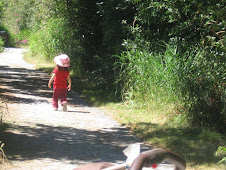Another study published in The American Journal of Clinical Nutrition showed that those given an omega3 supplement had lowered their blood pressure and improved their cardiovascular by lowering their triglycerides and regulating their heart rhythmns. Fish oil can reduce the high cholesterol, high blood pressure, heart problems and strokes experienced by many Boomers as they get older.
As Boomers age, Type 2 diabetes is also a threat, fast becoming almost an epidemic. It has been discovered there is a definite link between fish oil and diabetes prevention. Taking a daily supplement of fish oil will help, along with exercise, a proper diet and weight loss.
Omega3 is not only suspected of being effective for inflammation but also in helping to alleviate depression and to improve memory and concentration. It is also believed to help reduce the risk of cancer, especially those that are hormonal such as breast cancer. Fish oil is also believed to be an immune booster.
For those who have concerns about fish oil containing high levels of mercury or other contaminants, studies have shown that they are safe for use. It has been discovered that these contaminants are in the meat of the fish and not in the oil.
For those Boomers who have not exercised, eaten healthy diets, or looked after their health over the years and have slipped instead into sedentary lifestyles, it would be a let-down for them to look back at the vibrant youth they once were, who planned to conquer the world with great ideas and never thought they would ever be one of the 'old ones'.
We don't have to be! It is up to us and how we look after ourselves. We can change our lives at any time by simple lifestyle changes, by improving our diets, exercising, losing weight and including fish oil in our daily diets as many nutritionists suggest. By doing this, we are again taking charge of our own lives as we once did when we were younger. We don't have to wait and let life happen to us. We can be proactive in our health care choices and put off many of the diseases that come with aging.
I am one of the many Boomers who include fish oil in their daily diets. Taking a daily capsule, as I do, is one way but I also include other dietary foods that include fish oil like sardines, or foods that are omega3 enhanced such as free range eggs.
As Boomers, I believe very strongly in the importance of doing everything possible to stave off, as long as possible, any serious health problems, and adding a daily supplement of fish oil is one of the ways to hopefully do it.




















































































